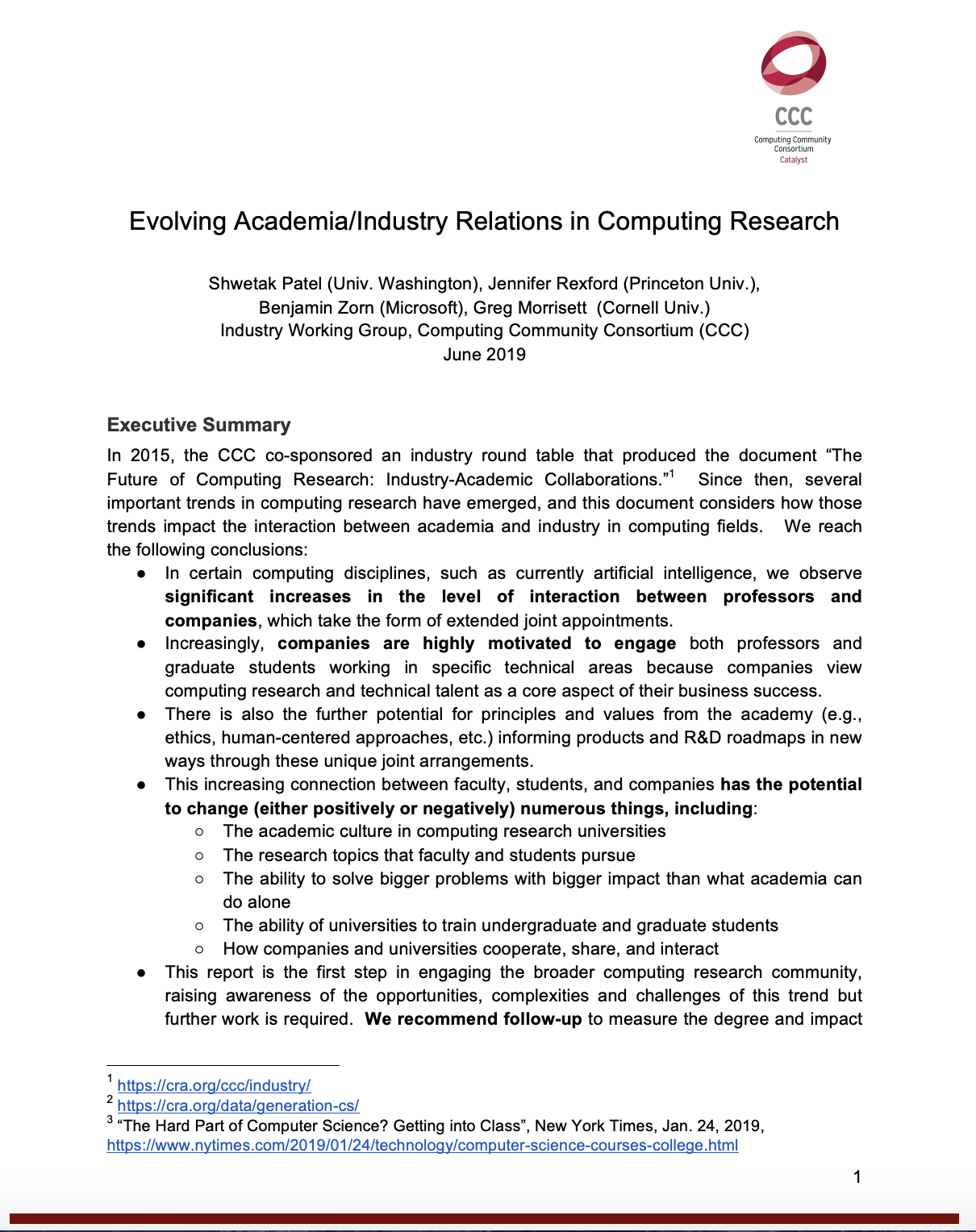 CCC Council member Ben Zorn provided contributions to this post.
CCC Council member Ben Zorn provided contributions to this post.
Recently, the Computing Community Consortium (CCC) released a new industry report called the Evolving Academia/Industry Relations in Computing Research, which was organized by Ben Zorn from Microsoft Research and chair of the CCC Industry Working Group.
The working group started in 2018 with a mission to see if the environment described by the 2015 CCC industry round table report called The Future of Computing Research: Industry-Academic Collaborations had changed at all. Turns out it has and a lot! Since then several important trends in computing research have emerged. This new report considers how these trends impact the interaction between academia and industry in computing fields.
The working group interviewed individuals including deans, CS department chairs, CS faculty, individuals at start-ups and large companies. They released an interim report and then a final report to inform the community. They reached the following conclusions:
- In certain computing disciplines, such as currently artificial intelligence, we observe significant increases in the level of interaction between professors and companies, which take the form of extended joint appointments.
- Increasingly, companies are highly motivated to engage both professors and graduate students working in specific technical areas because companies view computing research and technical talent as a core aspect of their business success.
- There is also the further potential for principles and values from the academy (e.g., ethics, human-centered approaches, etc.) informing products and R&D roadmaps in new ways through these unique joint arrangements.
- This increasing connection between faculty, students, and companies has the potential to change (either positively or negatively) numerous things, including:
- The academic culture in computing research universities
- The research topics that faculty and students pursue
- The ability to solve bigger problems with bigger impact than what academia can do alone
- The ability of universities to train undergraduate and graduate students
- How companies and universities cooperate, share, and interact
- This report is the first step in engaging the broader computing research community, raising awareness of the opportunities, complexities and challenges of this trend but further work is required. We recommend follow-up to measure the degree and impact of this trend and to establish best practices that are shared widely among computing research institutions.
Last week, Ben Zorn presented the report to the Computing Research Association (CRA) Board and received a strong positive response. Ben recommended that follow-up is required by an organization like the CRA so that:
- Trends are more systematically documented and understood
- Best practices and experiences are documented and shared between universities for greater leverage
- Students, professors, university administrators, and company officials are made aware of these changes so that they can plan accordingly
The board was excited about the work and the potential next steps as they begin to look into this area.









